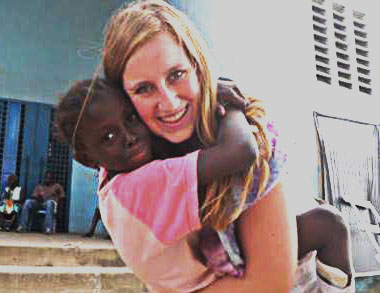The Path Less Traveled
May 28, 2015
It’s late April, and seniors at LHS are donning t-shirts branded with university logos and cramming into the CRC to pin their flags on maps. Ms. Amy Belstra is running around with a camera, and groups of people with matching shirts line up, smiles wide with nervous excitement, hands clutching signs with college names scrawled in Sharpie. Still, a few seniors are missing, ones who haven’t chosen the beaten path of uninterrupted education. Rather than throwing themselves right onto the college-bound bandwagon as incoming university freshmen, these seniors have decided to take time off with a gap year.
Taking a year off of school to travel and experience opportunities not included in the conventional college package is beneficial in many ways. LHS college and career counselor, Ms. Amy Belstra, said that gap years can provide advantages like “increased self awareness, like understanding better your interests and ‘who you are,’ giving yourself a break before college so you’re rejuvenated and ready for the academics, seeing a different part of the world or channeling your passion for service.”
The aim of college is to prepare students to be independent and well-rounded members of society, and part of this is the real-world experience they are expected to gain before joining the workforce. Gap years present students with the chance to “work to earn money for college so that they do not have to borrow,” according to Q-Z LST counselor Mr. John Mortillaro.
Libertyville seniors can choose from a variety of different gap year programs, including “…things like Seamester (sailing around various parts of the world) to volunteering with nature preserves and orphanages in Africa to language immersion in Latin America,” Ms. Belstra noted. “We’ve also had students raise money to support themselves on volunteer programs like the Mercy Ships, which is a ‘floating hospital’ that pulls into port around Africa and is fully staffed by volunteers.”
Many gap-year programs incorporate services to help their participants pay for the trip, which includes various types of help throughout the duration of their stay. Senior Emmalee Berger, who plans on taking a gap year next year, described “…one program in Australia [that] basically helps you get a visa… and it helps you get a job, so you have to pay for the support and everything, but you get paid for whatever job you’re doing.”
After intensive research, Berger has narrowed down gap year programs to two possibilities that will take her to Costa Rica or Romania. Through her travels, she wants to find herself: “I have no idea what I want to do with my life, so if I could find something that I’m passionate about, that’s what I’m really hoping for.”
Berger started contemplating a gap year her freshman year, and ever since, she’s focused on numerous possible programs and looked at a variety of colleges that have a more holistic learning style.
“I love learning, I do, [but] I hate the way we have to do it though,” Berger explained. “And I think it’s just stifling, so all through high school I was looking at alternatives so I could go out and learn a different way.”
Jenny Prochotsky, a junior at Illinois Wesleyan University, decided to participate in Mercyships, an independent ship organization that helps bring hospital services to underdeveloped countries. Part of her job was to “keep statistics, order meals, control patient flow (between pre-op, post-op, and operating room), to make appointments for follow ups, and to do odd jobs like change babies or play games with patients who didn’t have much family around.”
This gap year enabled Prochotsky to discover her passion for becoming a physician with a focus on women’s health and explore other countries in her free time. “I worked normal work hours (~40 a week) and then the rest of my time was free to hang out with friends and explore the different countries we were in (Sierra Leone, Ghana, and Togo).”
Other positives of her gap year were that she “gained a lot of maturity, and insight into the world beyond my narrow scope of growing up in a privileged suburb. I made friends that challenged me to think deeply about complicated issues, and I realized that when I am pushed, I can actually handle quite a lot. I learned how to be resilient when times are hard, like when I really missed friends and family at the holidays.”
The only downside was the fear that Prochotsky wouldn’t be able to relate to students her age due to differences in the level of growth and maturity. However, she discovered that “[t]his was honestly a non-issue though. Obviously there is a range of maturity levels wherever you are and taking a gap year didn’t really change that. [She] was able to find lots of friends that could connect with [her] and share in [her] experiences.”
As interesting as they might seem, gap years are not suited for everyone, but rather those willing to deviate from the beaten path. This an issue that the counseling and college/career staff at LHS has often tackled.
“I certainly would advise someone [to take a gap year] if I felt that it was right for them, and for some students it might be,” said Mr. Mortillaro. “Looking at different pathways instead of just following the crowd can often be the healthiest of decisions.”
Taking a gap year is a highly atypical route to post high school education. However, those who feel it is right for them and are individualistic enough to pursue it may discover more about themselves than they could have in a conventional lecture hall setting. Many of them return after having discovered their true talents and passions, and have pursued and achieved goals that had once seemed unattainable before the eye-opening experience of a gap year.
For further information on Mercyships, see Prochotsky’s TEDx talk about her experience.

